At 7.30pm on a Thursday night, The Bachelorette is on TV and Melbourne student Lily Rayner is scrolling through her favourite Facebook group, trading comments and tips.
But the women in the She’s On The Money group aren’t discussing bachelorette Angie Kent’s latest dress. Instead, they’re engaged in detailed discussions about the best super fund and how HECS debt is accrued – and paid off.
“Before signing up, I didn’t think much about money,” says Rayner, a softly spoken 24-year-old who’s also working in PR. “I just thought money comes in and goes out. I didn’t even know what interest was – I didn’t have a whole lot of financial literacy.”
Now she looks at the posts daily (“it’s one of the only groups I actively engage with on Facebook”), taking an interest in issues like home buying that aren’t immediately relevant to her. Neither are the comments underneath the posts just the standard, three-line anecdotes. They’re detailed discussions about everything from robo advisors and Centrelink to superannuation accounts, and so useful to Rayner that they’ve helped her totally overhaul her relationship with money.
Rayner is part of a new push by millennial women to take control of their finances and financial planning. You can see it in the popularity of podcasts and Facebook groups like She’s On The Money, which has nearly 27,000 members and receives 1000 requests every week from women keen to join. Other new developments include the rise of workshops devoted to women and finance, and the launch of specialist companies – such as Verve Super, Australia’s first superannuation fund for women, and FairVine – that cater to women’s financial needs, which are often very different to men’s.
Since launching in December 2018, Verve has already signed up 1500 members with $60m under fund management. FairView, the newest player in the women’s super game, has grown its membership by 52 per cent last month alone.
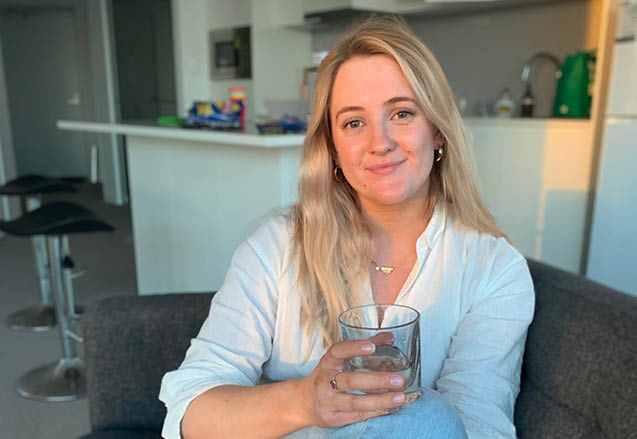
And this interest in financial matters seems to be paying off. Young Australian women are now more likely to own their home than men, with government data showing 60 per cent of Australian women own their home either with a mortgage or debt-free, compared with 56 per cent of men. Among the under-35s, 27 per cent of women and 21 per cent of men own their home, mostly with a mortgage.
Rayner’s long-term goals are to develop great saving habits and to become fully financially literate. “By reading these things, I’m more prepared for when I do face those financial decisions later on,” she adds.
Now, she keeps a close watch on where she spends her income. “I have switched to UP, an online bank that helps me keep on top of my money,” she says. “I now have rent, bills, Europe, Singapore and rainy day accounts within my current account and I know where my money goes each month.”
It’s a situation that women a mere 10 years older than Lily would find surprising. After all, it doesn’t feel that long ago since Sex And The City’s Carrie Bradshaw realised she couldn’t afford to buy her apartment because she had bought too many shoes. Back then, it seemed like a harmless trope: a fashion-loving woman who was hopeless with money.
In retrospect, we can see that this stereotype simply illustrates the unhelpful dichotomy between male and female expectations about money. Unfortunately, this division persists.
Young Australian women are now more likely to own their home than men
A recent study into 300 articles about money, commissioned by the female head of British bank Starling, found that 65 per cent of women’s magazines, for example, painted their readers as “excessive spenders”. Any financial advice they gave focused on cutting back on small luxuries like coffees in order to save up for the latest handbag. In contrast, 70 per cent of magazines aimed at men emphasised making money.
As Starling CEO Anne Boden recently told the New York Times, “Women’s magazines focus on saving money and deal hunting, while the men’s talk about money in terms of power and luxury.”
It’s an approach that’s long infuriated ex-banker Sallie Krawcheck, an outspoken advocate for women’s investing. After high-profile roles at Citigroup and Bank of America, she launched Elevate, a digital investment platform for women. At a recent US symposium, she told the audience: “The money media for men says to beat the market, outperform the market, and for women it’s ‘what’s your money type? Are you a Carrie or a Miranda from Sex and the City?”
But now young women are rejecting these outdated attitudes, and Facebook groups and podcasts like She’s On The Money offer a way of doing just that. “The Facebook page attracts young, educated women who just want to be better at money, but were never given the financial education growing up,” says host and financial consultant Victoria Devine.
“Parents, especially from the baby boomer generation, talked to boys and girls differently, with the expectation that boys would grow up to be providers and women would look after the home. That influenced our relationship with money and finances, and now we’re trying to make up for it.”
The money media for men says to beat the market, outperform the market, and for women it’s ‘what’s your money type?
The truth is, women are actually more financially responsible than men. According to statistics from comparison site Finder.com, they’re half as likely to be sucked into credit card ‘prestige’ programs; they spend about $50 less than men on unnecessary purchases (random online shopping purchases) per week; and they fork out far less on hidden purchases (purchases hidden from their partners) per month – $366 compared to $807 for men.
“Because women don’t have as much money to play with as men, they actually tend to be far less ‘frivolous’ with their cash and tend to have better money management habits – men could learn a thing or two,” says money expert at Finder, Bessie Hassan.
Sangeeta Venkatesan, the executive chair of FairVine says younger women are coming to her asking questions about their super – even before they begin working. “While older women – those in their 50s – are waking up to their financial reality and reaching out, younger women are asking the right questions from day one. It’s a very different generation,” she says.
While it’s obviously better to start financial planning early, it’s never too late to start, as journalist Nicole Haddow can attest. After spending much of her 20s travelling, going out and having fun, Haddow woke up after her 30th birthday with a stonking hangover and the realisation she’d accumulated $11,000 of debt, with very little to show for it. She describes her experiences, as detailed in her book, Smashed Avocado, as a “cautionary tale”.
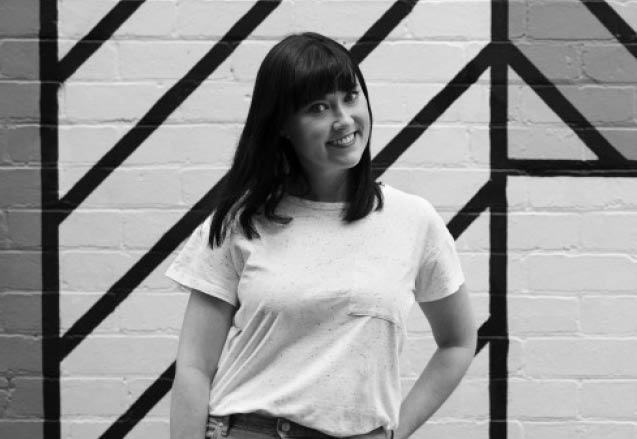
As a freelance writer, Haddow’s income was patchy and didn’t quite keep up with the $300 dinners and hectic social life she’d become accustomed to. “I didn’t think too much about it. I had an assumption that because I was working towards professional success, I would eventually find financial freedom at some point,” she says. It wasn’t until she was forced to move back home to her parents’ house that she started to realise her current attitudes towards money meant she’d never achieve her dream of buying a home – and securing a stable future.
So, in order to clean up her finances, Haddow took drastic action. “I made the decision to be ruthless for 12 months, and cut out everything that wasn’t essential,” she says. “This meant pulling back on my social life, and going out with friends, buying clothes and going on holidays.”
Instead of $300 dinners, Haddow would have pizza with friends at home and, aside from an emergency T-shirt purchase, all her clothes were discarded samples, given to her by her brother’s girlfriend at the time, who was – handily – working for a major fashion label.
As Haddow climbed out of the red and into the blue, she was eventually able to buy her first property, which she now rents out while living in a location she can’t quite yet afford to buy in.
As a freelance writer, Haddow’s income was patchy and didn’t quite keep up with the $300 dinners and hectic social life she’d become accustomed to
But although all this is encouraging, some experts sound a warning note. Women’s personal financial savvy is important, but if we’re really serious about equality we need systemic changes, too.
Take super, for example.
Australia’s superannuation system is based on the assumption that everyone engages in full-time work, says Christina Hobbs, the chief executive and co-founder of Verve Super. But kids and career breaks mean almost a third of women work part-time or casually, and that affects our ability to save.
“Given that women are more likely to be undertaking unpaid care work of children and elderly people, it’s impossible for those women to retire comfortably,” adds Hobbs.
A 2016 report found that 34 per cent of single women aged over 60 were living in permanent income poverty, compared to 27 per cent of single older men and 24 per cent of couples.
In particular, Hobbs is frustrated at the way the media frames the 47 per cent super pay gap for women.
“Women are told that to close the gap, they have to make additional contributions to their super,” she says. “And while those things are good, they won’t close the gap unless we have fair retirement policy”.
Paying women super while they are on parental leave, receiving caring credits or payments when they’re on carers’ leave and making it easy for working partners to contribute to their stay-at-home partner’s super are key to levelling the playing field for women, she says.
In the meantime, it seems women have realised they need to take control of their own financial future. For women like Rayner and Haddon, it’s the ultimate form of self-care.
“I think it’s super important for women to be financially literate,” Rayner says. “I was in a relationship a few years ago where my partner made all the financial decisions and earned about twice to three times what I did in a financial year.
“He had terrible money habits, and I felt very controlled by our limited funds. I also didn’t have the agency to have those awkward conversations about how he spent our money, because so much of it was coming from him.”
Today, Rayner says she feels “strong, aware and literate when it comes to money and financial decision-making.”
Adds Haddow: “Being a part of something as seemingly small as a Facebook group can be a fantastic way to learn about money in a really safe environment.”





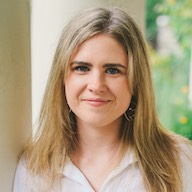

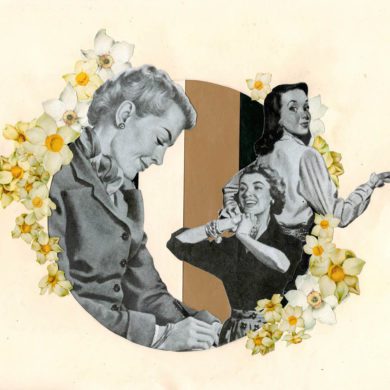


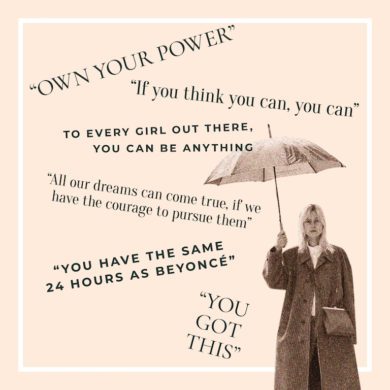


No Comments